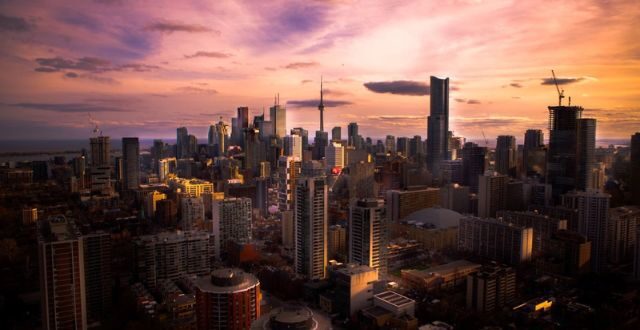Toronto is one of the most demanded cities in Canada among tourists, including both Canadians traveling internally and visitors coming from abroad. Expectedly, the city is home to a thriving short-term vacation rental market that has been growing consistently.
The city has all the necessary infrastructure for developing a successful business, including even professional Airbnb management services from companies like https://masterhost.ca/airbnb-management-toronto/. But before launching the business here, it is important for investors to learn more about the unique rental market of Toronto.
Toronto Vacation Rental Market Overview
Toronto’s short-term vacation rental market is huge, as it boasts more than 14,000 active listings right now. The market reached pre-pandemic numbers about a year ago and has grown by more than 25% since.
The competition in Toronto is expectedly intense, as Airbnbs are present in every district of the city. Reasonably, the most demanded areas like Downtown are the most competitive ones and the most expensive ones in terms of real estate prices.
The vast majority of properties (more than 70%) in Toronto are listed with the Strict cancellation policy, meaning there is still room for competitive advantage for newcomers. The minimum stay term is between seven and twenty-nine nights at almost 40% of rentals in the city, and more than 30% of properties are not rented out for shorter than a month. Offering a shorter minimum stay is another option for new entrants to stand out in this competitive environment.
The rates and other performance metrics will be discussed in further detail in the following section, but for now, it is important to highlight that the price of renting an Airbnb in Toronto is noticeably higher than in most other Canadian cities. The demand for cheaper alternatives is there, and the supply is quick to follow, as a whopping 34% of total listings in the city are private rooms. This is a distinction worth noting, as in most other cities of Canada, the percentage of entire home listings exceeds ninety.
A significant advantage of Toronto that sets it apart from many other Canadian cities is the reduced seasonal effect on demand. It is one of the most popular cities in the country, and visitors come here all year round, ensuring a stable and reliable flow of revenue to local hosts. Of course, the rates still have to be adjusted for less popular months, but the effect is much weaker than in many other places in Canada.
Key Performance Metrics of Airbnbs in Toronto
With more than 14,000 active listings in Toronto, it might sound surprising that its Average Daily Rates are higher than in most other destinations of Canada. This is mainly explained by huge levels of demand that enable local hosts to keep the ADR on the level of $159.4.
The Occupancy Rates are lower than in some other Canadian cities, as they stay on the level of 58% throughout the year. This is mainly explained by the intense competition among hosts in all neighborhoods of the city.
Even despite having relatively low Occupancy Rates, local properties still manage to generate an average $33,900 worth of annual revenue, which is noticeably higher than in many other Canadian cities. The two main factors behind this result are high daily rates and low effect of seasonality on demand. The RevPAR parameter, which represents the Revenue per Available Rental is also fairly decent in Toronto, as it stays on the level of $98.
Regulations of Short-Term Vacation Rentals in Toronto
There are two core aspects of business-related regulations that aspiring entrepreneurs and investors should keep in mind when planning to launch an Airbnb in Toronto. They are licensing and taxation, and it is reasonable to review them separately in order not to miss any important details.
Licensing of Airbnbs in Toronto
Much like in most other cities in Canada, the authorities in Toronto require all short-term vacation rentals to obtain licenses in order to operate. Needless to say, launching an enterprise without a license will lead to receiving hefty fines and potentially even worse repercussions.
The license has to be obtained with the city’s administration. It is possible to apply and pay the registration fee online, although before submitting the application, it is vital to ensure the property is eligible for being rented out. In fact, it is absolutely crucial to learn the city’s zoning regulations before even purchasing the property to ensure the license will be issued.
After obtaining the license, the Airbnb managers will also have to comply with a number of regulations. First of all, it will be necessary to display the license number in all listings and advertisements of the vacation rental. Secondly, the hosts will have to provide their guests with emergency exit plans as well as inform them on how to contact the city’s emergency services.
Another important aspect of conducting short-term vacation rental business in Toronto legally refers to keeping record of the number of nights the property was rented, the nightly and total prices that were charged for it, and the type of rent, which refers to entire home or room rent. These records then need to be provided to the city’s administration for review upon its request.
Taxation
The main tax associated with conducting short-term vacation rental business in the city of Toronto is called MAT. It stands for the Municipal Accommodation Tax, and it requires local hosts and Airbnb managers to collect and remit 6% of the rental’s revenue.
The good news is that filing and paying the tax is rather intuitive, meaning it will not become an operational burden. Of course, the portion of the revenue dedicated to paying this tax should be kept in mind while planning the future enterprise and projecting its potential performance.
 khamush.com Lifestyle | Motivation | Poems
khamush.com Lifestyle | Motivation | Poems



